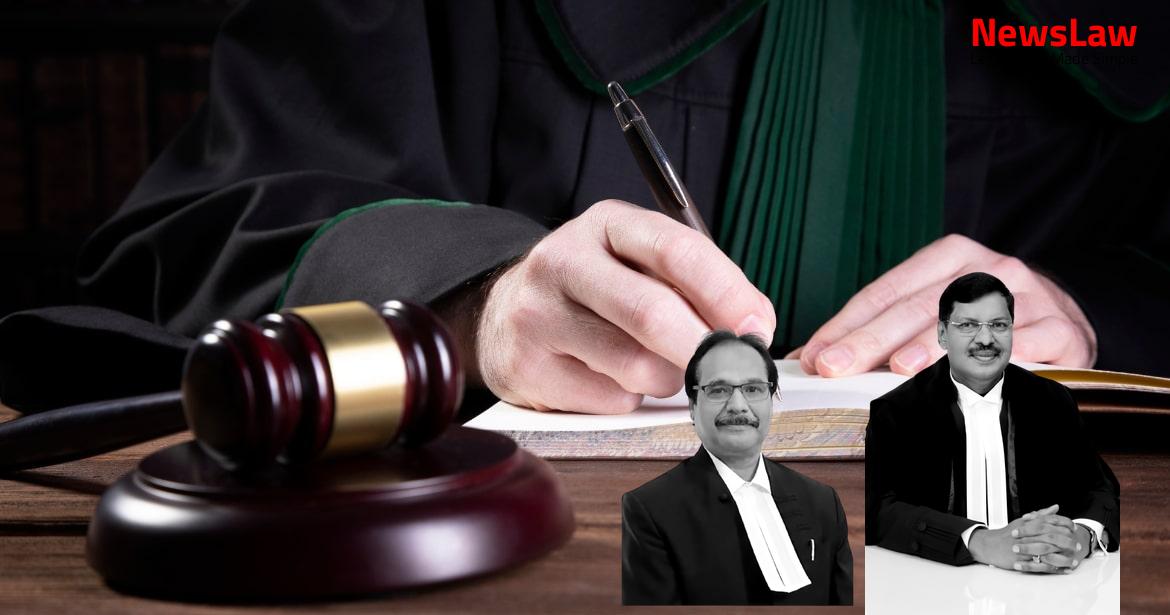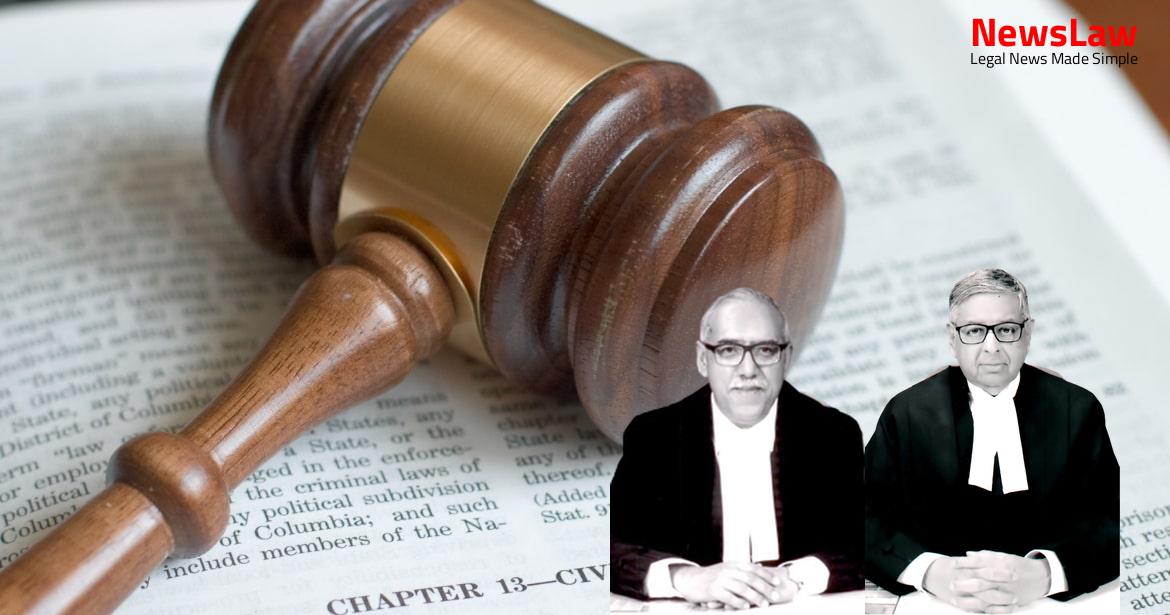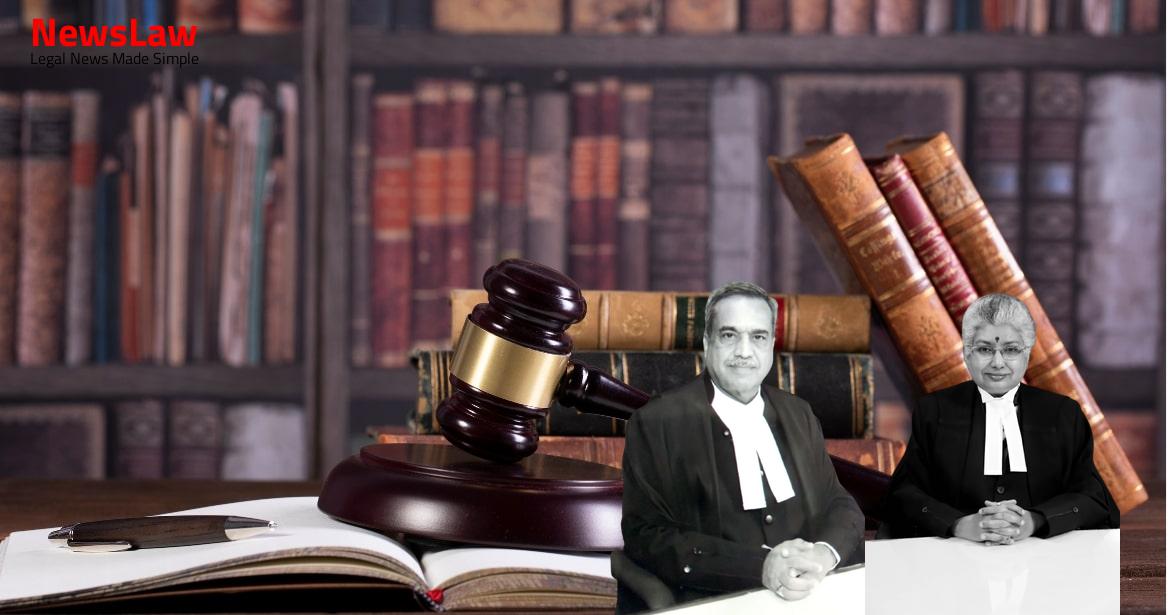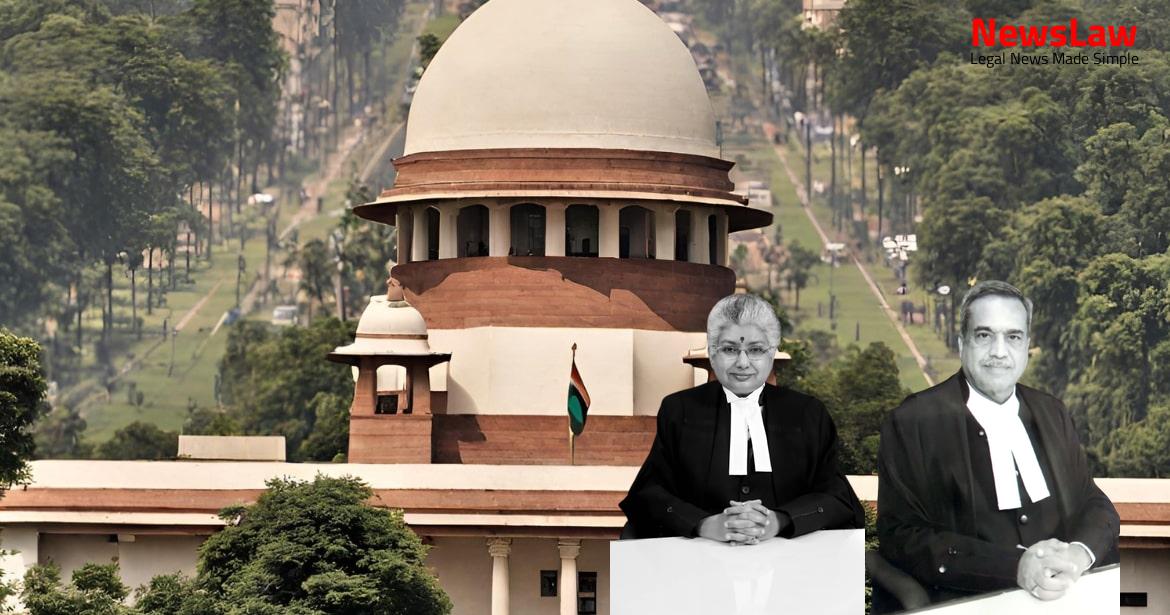In a landmark judgment, the Supreme Court of India has ruled on the enforcement of subsequent sales under Section 52 of the Transfer of Property Act. The case involved a dispute between Daljit Singh and Defendant No. 2 regarding specific performance of an agreement. The Court’s decision upholds the doctrine of lis pendens, impacting property transactions during litigation. This judgment marks a significant development in property law jurisprudence.
Facts
- Plaintiff Daljit Singh filed a suit for specific performance of an agreement to sell dated 17.08.1990 for land measuring 79 Kanals 09 marlas.
- The suit was filed within 23 days as stipulated in the agreement.
- Defendant No. 2 appealed against the High Court’s judgment allowing specific performance.
- Trial Court found the agreement valid but denied specific performance as Defendant No. 2 was the owner in possession of the land.
- Defendant No. 2 stated he purchased the land from Defendant No. 1 through a registered sale deed and was unaware of the agreement to sell.
- Plaintiff was ready to perform his part of the contract.
- Plaintiff’s claim of being present at the Sub-Registrar’s office with the balance sale consideration was supported by an affidavit.
- The High Court found that the sale deed in favor of the appellant was hit by the doctrine of lis pendens.
- Defendant no. 2/appellant was not considered a bona fide purchaser by the High Court.
- The suit was filed on 24.12.1992 and the sale deed was executed on 08.01.1993, before the next hearing date.
- The First Appellate Court held that the subject sale agreement resulted from fraud and collusion between the plaintiff and defendant no. 1.
- The agreement was for Rs. 7,94,000/- while the sale deed was for Rs. 6,45,937.50.
- Relationship between the plaintiff and defendant no. 1 was not a valid ground to deny the discretionary relief.
- Both the Trial Court and First Appellate Court found the plaintiff was ready and willing to perform his part of the contract.
Also Read: Interpolated Fixed Deposit Case: Supreme Court Decision
Arguments
- Mr. Hrin P. Raval, learned senior counsel, represented the appellant.
- He argued that the High Court should not have overturned the decisions of the Trial Court and the Appellate Court.
- Mr. Manoj Swarup, senior counsel for the respondents argued that the Trial Court and Appellate Court’s judgment was based on perverse findings and reasoning.
- He supported the High Court’s decision to set aside the previous judgments and decree the plaintiff’s suit for specific performance.
- Mr. Swarup emphasized the application of the doctrine of lis pendens by the High Court in this case.
Also Read: Case of Appointment of a Junior Judge Advocate in Court Martial: Legal Implications
Analysis
- Defendants did not challenge the finding on issue no. 5 regarding the agreement dated 17.08.1990.
- Defendants did not file any cross-appeal or cross-objections against the decree for refund and finding on issue no. 5.
- In absence of cross-appeal or cross-objections, the First Appellate Court could not have found the subject agreement to be collusive.
- The Trial Court partially decreed the suit for recovery of Rs. 40,000.
- The principle of lis pendens applies, preventing the second sale from overriding the first sale.
- The 1976 amendment to CPC clarified and enabled the filing of cross-objections against findings.
- In the present case, the suit was filed before the second sale of the property.
- The First Appellate Court erred in holding the subject agreement as collusive without any cross-appeal or objections by the defendants.
- Section 19 of the Specific Relief Act allows for enforcement of subsequent sales for good and sufficient reasons.
- The doctrine of “lis pendens” prohibits dealing with the property which is the subject of a suit, and serves as constructive notice to a purchaser.
- A transferee pendente lite cannot seek benefits of certain rules in Order 21 if causing resistance or obstruction.
- The decision of the court in a pending suit binds not only the litigating parties but also those who derive title from them during the suit.
- The doctrine of lis pendens applies to alienations during the pendency of a suit, irrespective of the alienees having notice of the proceedings.
- Purchasers of suit property during litigation have no right to resist or obstruct execution of a decree by a competent court.
- Alienations during a suit may not affect the rights established by any decree arising from the suit, unless with court permission.
- The principles in Section 52 of the TP Act regarding subsequent sales are based on equity and public policy, not individual good faith.
- The principle of lis pendens under Section 52 of the TP Act is rooted in public policy, making questions of good faith irrelevant.
- Plaintiff’s non-suit was based on defendant no. 2 being a bona fide purchaser without notice of the agreement.
- However, since the subsequent sale during the pending suit was hit by the doctrine of lis pendens, High Court’s decision to set aside Trial Court’s judgment was justified.
- High Court’s ruling for specific performance was in accordance with the law.
- The sale deed executed during the pendency of the suit was in violation of the doctrine of lis pendens under Section 52 of the Transfer of Property Act, 1882.
- The Trial Court’s finding of the agreement being proved and the directive for the refund of Rs. 40,000 to the plaintiff was not challenged by the defendant.
- No cross-appeal or cross-objections were made regarding the Trial Court’s partial decree, making the finding final.
Also Read: Dismissal of Civil Appeal Due to Infructuous Nature
Decision
- The judgment of the lower court is affirmed
- The instant appeal is dismissed
- No order has been given regarding costs
Case Title: SHINGARA SINGH Vs. DALJIT SINGH (2024 INSC 770)
Case Number: C.A. No.-005919-005919 – 2023



